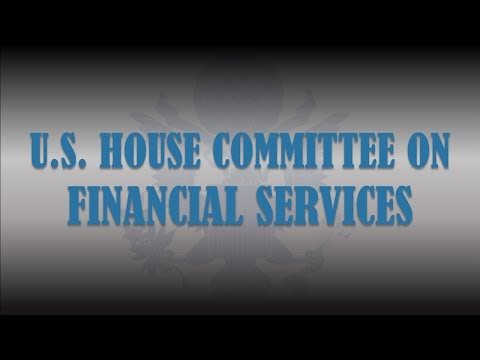Wednesday, January 15, 2020 (2:00 PM) — Overseeing the Standard Setters: An Examination of the Financial Accounting Standards Board and the Public Company Accounting Oversight Board
Connect with the House Financial Services Committee
Get the latest news: https://financialservices.house.gov/
Follow us on Facebook: https://www.facebook.com/FinancialDems/
Follow us on Twitter: https://twitter.com/FSCDems
________________
This hearing will have one panel with the following witnesses:
• Russell G. Golden, Chairman, Financial Accounting Standards Board
• Willian D. Duhnke III, Chairman, Public Company Accounting Oversight Board
Purpose
The Financial Accounting Standards Board (FASB) is an independent, private-sector, nonprofit
organization that establishes financial accounting and reporting standards for public and private
companies and nonprofit organizations that follow Generally Accepted Accounting Principles
(GAAP).
FASB has seven members, none of which are currently minorities. FASB is recognized
by the Securities and Exchange Commission as the designated accounting standard-setter for
public companies, and these standards are recognized as authoritative by many other organizations,
including state Boards of Accountancy and the American Institute of CPAs (AICPA). These
standards govern the preparation of required financial statements and disclosures.
Given its unique structure and role, the standards issued by the FASB are not subject to the
Administrative Procedure Act, even though they have the effect of law once they have been
adopted.
For example, unless FASB decides to do so voluntarily, its new standards are not subject
to public notice and comment before adoption. Additionally, the public is unable to utilize the
Freedom of Information Act to seek information related to the FASB’s decision-making.
The Financial Accounting Foundation (FAF) is an independent, private sector, not-for-profit
organization that is responsible for the oversight, administration, financing, and appointment of
the FASB.
The FASB is comprised of seven board members who are appointed by the FAF Board
of Trustees, and generally serve 5-year terms, though they may serve for up to 10 years.
Accounting Standards
CECL: In June 2016, FASB promulgated the Current Expected Credit Loss (CECL) standard in
response to concerns with how banks recognize estimated credit losses under GAAP and how such
practices contributed to the 2007-2009 global financial crisis. The new standard is intended to
result in greater transparency of expected losses at an earlier date during the life of a loan compared to the current “incurred loss” methodology, which delays recognition until a bank determines a loss is probable. Early recognition of expected losses might not only help investors, but also improve financial stability by making the credit loss standard less procyclical.
In July 2019, FASB voted to extend the implementation deadline for small, public lenders, private lenders, credit unions, and nonprofits.
Liabilities v. Equities: In July 2019, FASB issued a proposed Accounting Standards Update (ASU)
designed to improve guidance for certain financial instruments with characteristics of both
liabilities and equities. Specifically, the proposal would reduce the number of accounting models
for convertible debt instruments and convertible preferred stock from five to two; revise the
derivatives scope exception guidance to reduce form-over-substance-based accounting
conclusions driven by remote contingent events; and would change the related disclosure earningsper-share guidance.
Goodwill and Intangible Assets: In October 2019, the FASB issued an Invitation to Comment:
“Identifiable Assets and Subsequent Accounting for Goodwill.” The request sought input on
whether FASB should change the subsequent accounting for goodwill; modify the recognition of
intangible assets in a business combination; or alter disclosures about goodwill and intangible
assets.
This request came after the FASB had received mixed feedback on whether the benefits
of the current goodwill impairment model justified compliance and audit costs.
LIBOR: In September 2019, as global capital markets continued to move away from the London
Interbank Offered Rate (LIBOR), FASB issued a proposed Accounting Standards Update (ASU)
that “would provide temporary optional guidance to ease the potential burden in accounting for,
or recognizing the effects of, reference rate reform on financial reporting.” This guidance is
expected only to apply to contracts or hedge accounting relationships that use LIBOR or other
reference rates that are expected to be discontinued, and because the guidance is intended to help
stakeholders during the transition, the guidance will be effective temporarily as well.
Hearing Page: https://financialservices.house.gov/calendar/eventsingle.aspx?EventID=406020
01/15/2020 — Overseeing the Standard Setters: An Examination of the Financial… — (EventID=110375)
